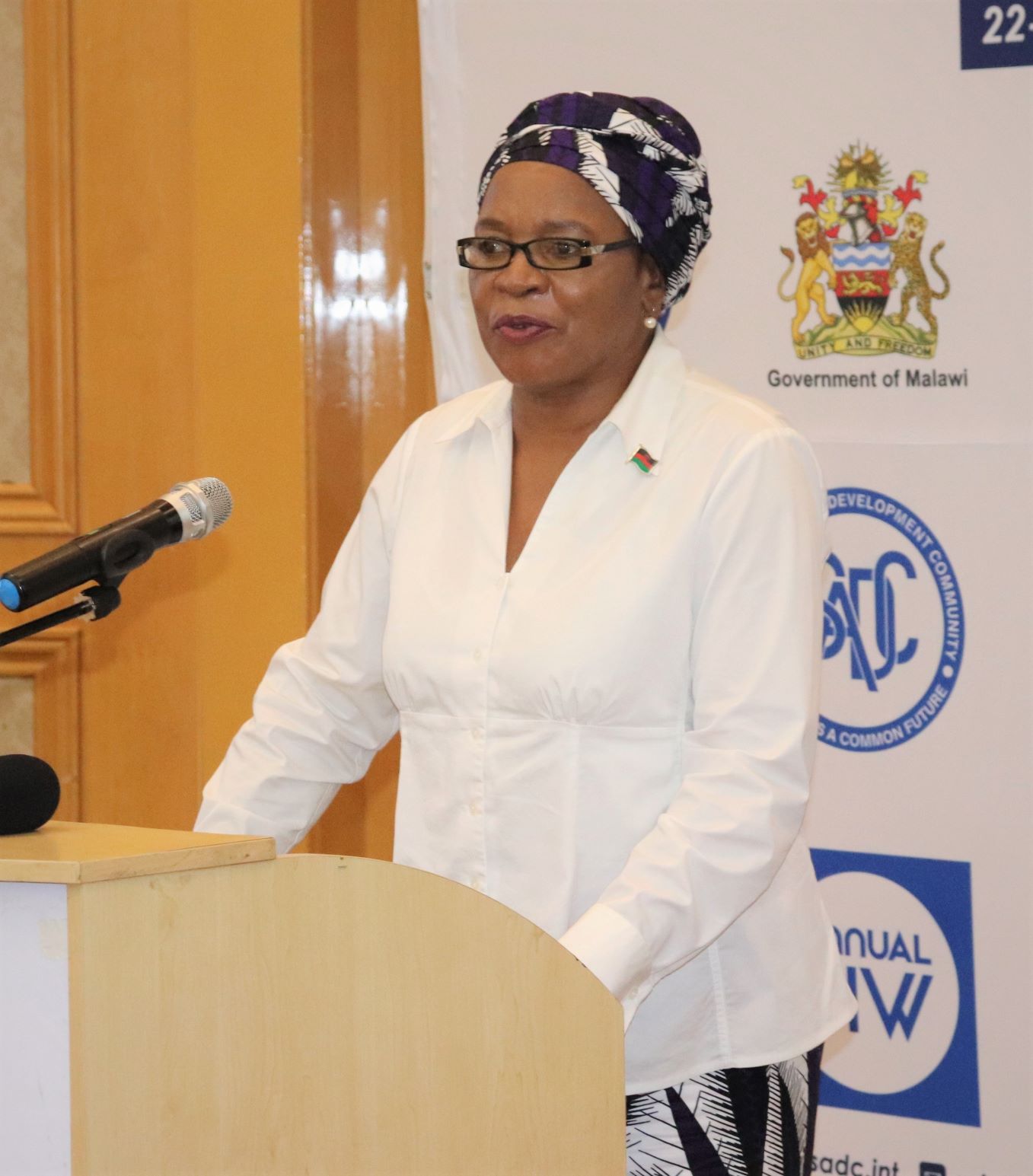
November 26, Lilongwe: In a quest to improve growth of the aquaculture sector, Malawi has launched various strategic frameworks that have been prepared to support programming of the country's department of fisheries.
Speaking on Thursday during the launch of the policy documents at a side event of the just ended 5th SADC industrial week and exhibition at the Bingu International Convention Centre (BICC), Minister of Forestry, Environment and Natural Resources, Nancy Tembo said the policy gives more weight to the aquaculture sector noting that increasing demand for fish is leading to overfishing in the country's lakes.
“The strategies being launched today are important, as they will provide a guide on clear actions in order for us to achieve our goals,” said Tembo.
The strategies and documents that were launched during the function include the Second Edition of the National Aquaculture Strategic Plan (NASP II), SADC Aligned National Aquatic Animal Health and Biosecurity Strategy, Harmonized Aquaculture Training Manual and also Success Stories in Aquaculture in Malawi and other Countries in the SADC region.
The Minister described the development of the National Aquaculture Strategic Plan (NASP II) as timely saying it replaces the first strategy which came to an end in 2015.
She said her ministry developed the NASP II document as a response to the Malawi 2063 development blueprint which has prioritised agriculture productivity and commercialization, as well as urbanisation.
“Because of the rapid urban population growth, there is growing demand for fish and since average incomes in the urban centres tend to be higher than those in the rural areas, the rising numbers of consumers in the cities and towns will offer opportunities for fish farmers to expand fish production,” she said.
According to the Minister, if the rising demand for fish is not fulfilled by domestic production, the country will continue to import fish from other countries like Zambia, risking the country to fish diseases.
In his remarks, SADC director of industrial development and trade, Dr. Khutula Sibanda said fisheries was made a particular sector in the SADC industrial week for the enormous benefits, it presents to the economies of respective countries and the region at large.
“The fisheries sector is very important for economic development as well as advancing the regional integration,” said Sibanda.
Concurring with Sibanda, Food and Agriculture Organization (FAO) Malawi Resident Representative, Dr. Zhijun Chen said aquaculture provides a good alternative to Malawi's food systems.
According to Chen, the sector has a great potential to expand further.
He has since called for strong collaboration between countries in the movement of fish products within the region.
The launch was preceded by a Think Tank Event which was aimed at creating awareness on the importance of fish, and also in particular the freshwater small pelagics, in food systems of the region with a view to developing strategies to strengthen policy focus and action on the nutrition, food security, economic development, post-harvest management and water nexus.
The event was targeting SADC Member States, Regional Economic Communities (RECs) in the African Great Lakes Region (AGLR) as well as partners under the CGIAR Research Program on Fish Agri-Food Systems (FISH).
The National Aquaculture Strategic Plan II which will run from 2021 to 2031 and also the Harmonised National Aquaculture Training Manual, were developed by the Department of Fisheries and relevant aquaculture stakeholders in Malawi, with financial and technical support from the German Federal Ministry for Economic Cooperation and Development (BMZ) through The Aquaculture Value Chain for Higher Income and Food Security in Malawi (AVCP) which is part of the GIZ Global Programme “Sustainable Fisheries and Aquaculture.
- Government Official Site showcases official Information and Documents.
